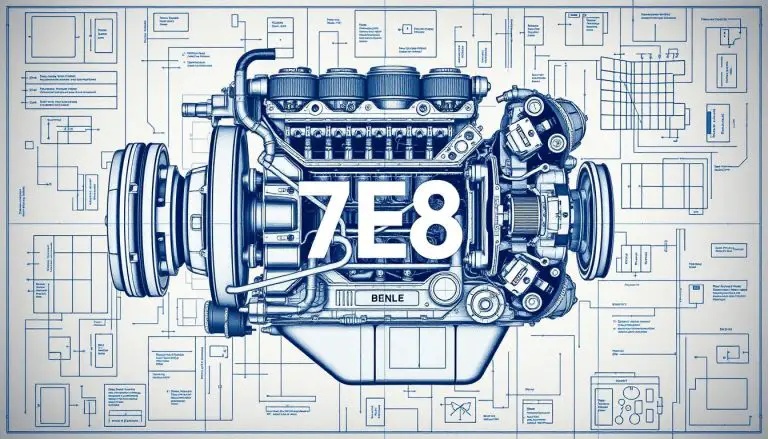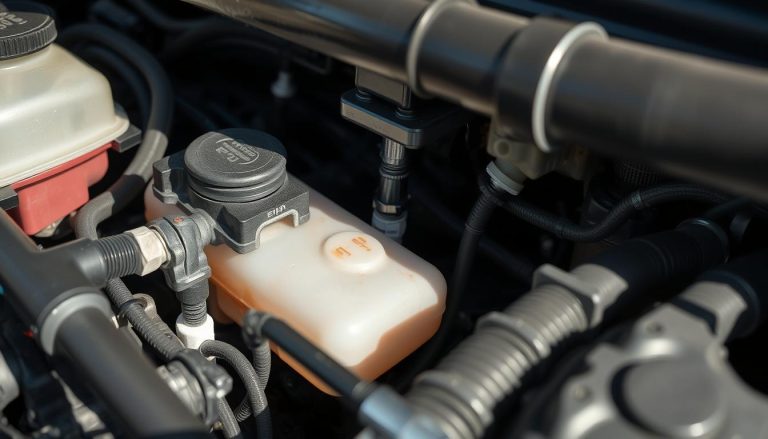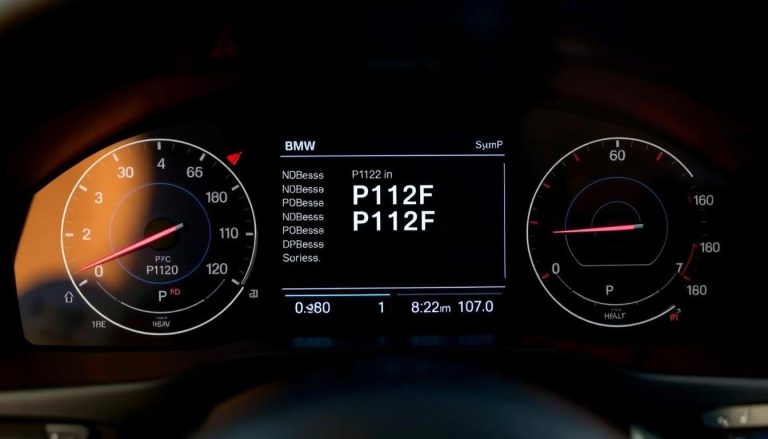When your vehicle’s check engine light flickers on, you’re suddenly thrown into the world of diagnostic trouble codes (DTCs), and one code that might pop up is the P0472 code. But what does this mysterious alphanumeric combination mean for you and your car?
Understanding the implications of the P0472 code is crucial to keeping your vehicle running smoothly. From assessing causes and symptoms to pinpointing fixes, let’s unravel everything there is to know about this particular issue .
What does the P0472 code mean?
The P0472 code indicates a problem with the exhaust pressure sensor A circuit. This sensor plays a critical role in monitoring the amount of exhaust gas exiting the vehicle’s engine. When everything is functioning correctly, it helps optimize performance and reduce emissions.
However, when this code appears, it signals that the voltage reading from the exhaust pressure sensor is lower than expected. Such discrepancies can stem from various issues within the circuit or related components.
This situation often suggests that there may be an underlying issue affecting your vehicle’s efficiency. Ignoring this code could lead to poor fuel economy and increased emissions over time, which means addressing it promptly is essential for maintaining vehicle health.
What are the common symptoms of a P0472 code?
When your vehicle registers a P0472 code, several symptoms may surface:
- A decline in engine performance. You might feel sluggish acceleration or unusual stalling.
- Another common symptom involves changes in fuel efficiency. If you notice that you’re filling up more often without any obvious reason, it could be linked to this code.
- The check engine light will likely illuminate on your dashboard.
- Unable to perform manual regeneration – burn off the soot out of the particulate filter.
- If unable to perform regeneration, eventually may become a crank-no start.
What are the common causes of a P0472 code?
The P0472 code can arise from several underlying issues :
- A faulty exhaust pressure sensor itself. Over time, wear and tear can lead to inaccurate readings or complete failure.
- Damaged wiring or connectors in the sensor circuit. Corrosion or fraying can disrupt communication between the sensor and the engine control module (ECM).
- Short to ground in the signal circuit to the exhaust pressure sensor
- A clogged diesel particulate filter (DPF) may also trigger this code. If exhaust flow is restricted, it can affect pressure readings significantly.
- Vacuum leaks in related components can contribute to erroneous data being sent to the ECM.
- Open in the signal circuit between the exhaust pressure sensor and the PCM
- Open in the power supply circuit between the exhaust pressure sensor and the PCM
What are the diagnostic steps for a P0472 code?
Diagnosing a P0472 code requires a systematic approach. Start by connecting an OBD-II scanner to your vehicle’s diagnostic port. This will allow you to retrieve the trouble codes stored in the system.
Next, visually inspect the exhaust pressure sensor and its wiring. Look for signs of damage, corrosion, or loose connections that could disrupt signal transmission.
Afterward, check the voltage supply to the sensor using a multimeter. The readings should align with manufacturer specifications; if not, it may indicate electrical issues.
If everything appears intact but you’re still facing problems, consider testing the exhaust pressure sensor itself. A faulty sensor can lead to erroneous readings.
Clear any fault codes and take the vehicle for a test drive to see if the P0472 code reappears. Monitoring how it performs under various conditions helps confirm whether repairs are needed.
How serious Is the P0472 Code? Can I continue driving with the P0472 code?
The P0472 code indicates a problem with the exhaust pressure sensor circuit. This issue can impact your vehicle’s overall performance and emissions control system.
Driving with this code is not advisable. The vehicle may experience reduced power or efficiency. In some cases, it could lead to more serious engine problems down the line.
While you might be able to drive short distances without immediate issues, ignoring this warning light can cause further damage. It’s essential to monitor how your car behaves and pay attention to any unusual sounds or changes in performance.
If you’re experiencing symptoms related to the P0472 code, it’s best to consult a mechanic soon. Addressing the problem early can save you time and money on repairs later.
What are the repair solutions for a P0472 – Exhaust Pressure Sensor A Circuit Low ?
Repairing a P0472 code typically starts with addressing the exhaust pressure sensor itself. If the sensor is faulty, replacing it can often resolve the issue.
Next, check for wiring problems. Damaged or corroded wires can lead to inaccurate readings and trigger the P0472 code. Repairing or replacing these components might be necessary.
Don’t forget to inspect connectors as well. Loose or dirty connections could disrupt communication between sensors and the engine control unit (ECU). Cleaning or securing them may fix the problem.
In some cases, an ECU update might be required if software glitches are contributing to incorrect diagnostics. Always consult your manufacturer guidelines when considering this option.
Ensure that there are no exhaust leaks affecting system performance. Addressing any leaks will help maintain optimal pressure levels in your vehicle’s exhaust system, potentially preventing future issues related to the P0472 code.
How long and How much does it cost to diagnose and repair a P0472 code?
Diagnosing a P0472 code typically takes between one to two hours at a repair shop. The actual time can vary based on the technician’s experience and the complexity of your vehicle.
As for costs, you might expect to pay anywhere from $100 to $150 for diagnostic services alone. This fee often includes scanning the onboard computer and inspecting related components.
Repair expenses can range significantly, depending on what’s causing the issue. If it’s just a faulty sensor, replacement may cost around $200 to $400 including parts and labor. However, if there are deeper issues in wiring or exhaust systems, costs could climb higher.
Always request an itemized estimate before proceeding with repairs so you know exactly what you’re paying for.
How can I avoid a P0472 code?
To avoid facing the P0472 code, regular maintenance is essential. Schedule routine inspections of your vehicle’s exhaust system and sensors. This proactive approach can prevent many issues before they escalate.
Keep an eye on your vehicle’s dashboard for any warning lights. Addressing small problems early can save you from more significant repairs later.
Using high-quality fuel also contributes to better performance. Poor fuel quality may lead to sensor malfunctions over time.
Additionally, ensure that all electrical connections associated with the exhaust pressure sensor are secure and free from corrosion. Regularly check wiring harnesses for signs of wear or damage.
Stay informed about any recalls related to your car model that might affect the exhaust system or sensors. Being aware could lead you to preventive measures specifically tailored for your vehicle’s needs.
What happens if you ignore a P0472 code?
Ignoring a P0472 code can lead to significant issues for your vehicle. The exhaust pressure sensor plays a crucial role in measuring the pressure within the exhaust system. If this component fails or is reading inaccurately, it can disrupt engine performance.
You might notice reduced fuel efficiency as the engine struggles to operate optimally. This inefficiency not only affects your wallet but may also increase harmful emissions released into the atmosphere.
Long-term neglect of this issue could cause further damage to other components, such as the turbocharger or catalytic converter, potentially leading to expensive repairs down the line.
Additionally, you risk failing an emissions test if your vehicle is equipped with stringent regulations. Ignoring warning codes like P0472 often results in more than just dashboard lights; it can compromise your car’s reliability and safety on the road.
Is the P0472 code specific to certain car makes or models?
The P0472 code is not limited to specific car makes or models. It can appear in a wide range of vehicles, including both domestic and foreign brands. This universality often stems from the common use of exhaust pressure sensors across many manufacturers.
While certain models might experience this issue more frequently due to design flaws or manufacturing quirks, no brand is entirely immune. Factors influencing the occurrence include engine type and emissions control systems.
However, some vehicle lines may have known problems with their exhaust pressure sensors that lead to higher incidences of the P0472 code. Researching particular models can provide insights into trends related to this error code and help owners stay informed about potential issues.
What other codes may be related to P0472?
When dealing with the P0472 code, it’s essential to recognize that it often doesn’t appear in isolation. Several other codes may accompany or be related to this issue, indicating broader problems within the exhaust system or engine management.
Commonly associated codes include P0471, which indicates a performance issue with the exhaust pressure sensor circuit. This code suggests that while the sensor is functioning, its readings are outside normal parameters. Meanwhile, P0473 signals high voltage in the exhaust pressure sensor circuit and could point toward wiring issues or a malfunctioning sensor.
Additionally, you might see codes like P0401 (EGR flow insufficient) and P0299 (turbocharger underboost). Both can affect overall vehicle performance and emissions control systems. If you’re encountering multiple trouble codes alongside P0472, it’s crucial to address them holistically for effective diagnosis and repair.
Addressing these interconnected issues will not only help resolve the problem indicated by your check engine light but also improve your vehicle’s efficiency and longevity on the road.


